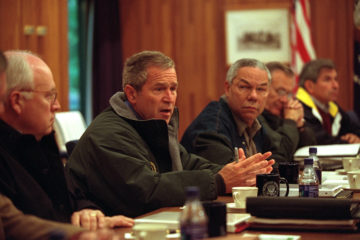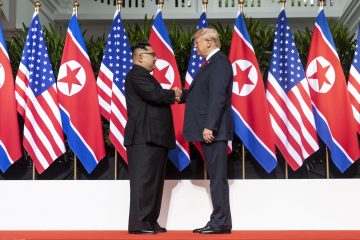October Surprise: How Foreign Policy Can Shape US Presidential Elections
The president’s recent diagnosis with Covid-19 sent the US presidential election race into a tailspin. As Donald Trump and Joe Biden jockey to regain control of the media narrative at a crucial phase of the campaign, speculation about a possible “October surprise” is widespread. Today, the term refers to any news story that breaks late in an election cycle and has the potential to affect the outcome of the election. Yet its origins are firmly rooted in foreign policy. In particular, the phrase describes a sitting president’s alleged propensity to manipulate events to boost their electoral prospects. The president’s recent tweet calling for all remaining US forces in Afghanistan to return home by Christmas has fueled suspicions that Trump is playing politics …

War and the Ballot Box: What the Iraq War Tells Us About Military Escalation in an Election Year
U.S. presidents have powerful political incentives to think twice before escalating a conflict in the lead-up to an election. Recent events in the Gulf suggest that President Trump is no exception when it comes to avoiding the commitment of “boots on the ground” in an election year. As both commander-in-chief and holder of the highest elected office, presidents must carefully weigh the political consequences of any decision regarding military strategy. Since voters tend to bear the brunt of the human and financial costs of war, decisions to send additional U.S. forces into combat are often fraught with risk of consequent reprisal at the ballot box. In my recent article in International Security, I explore how these electoral pressures affected decision-making during the Iraq War. …

Three reasons why foreign policy negotiations during the 2020 campaign season are a bad idea
“Deals are my art form. Other people paint beautifully on canvas or write wonderful poetry. I like making deals, preferably big deals.” [Donald Trump, The Art of the Deal] If history is any guide, there is reason to hope that President Trump belatedly takes up painting this campaign season. Over the next 18 months or so, as always seems to be the case in American politics, the looming presence of a presidential election will throw up a whole host of impediments to the pursuit of optimal diplomatic agreements abroad, including with China, Afghanistan and North Korea. A brief look back at critical negotiations during the wars in Vietnam and Iraq suggests a crucial lesson: electoral politics and diplomacy do not mix …










